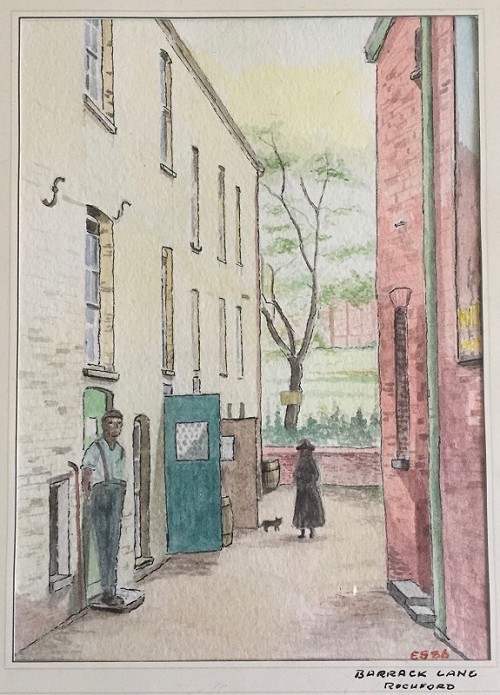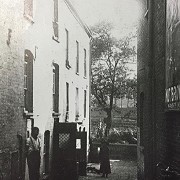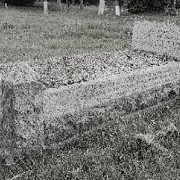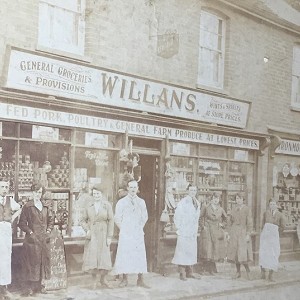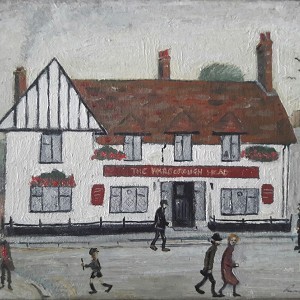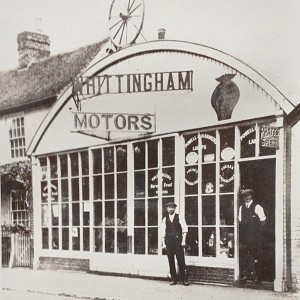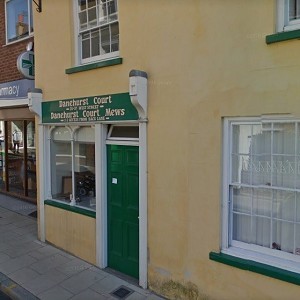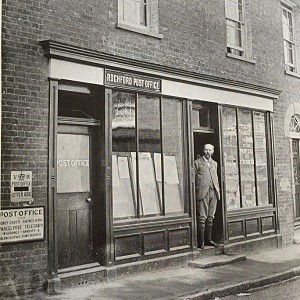About Barrack Lane - The Peculiar People (HT)
Press this YouTube link or read below.
Rochford in 1800 was a very different place from the town we know today. Then it was a small hamlet with a market square and four streets, with less than 200 dwellings. The town was surrounded by rich agricultural land, the largest property being Rochford Hall farm.
On 31st January 1800, in Barrack Lane, next to the Marlborough Head, James Banyard, the founding father of “the Peculiar People” was born. A man of many parts, a life of two halves:
- Farm labourer, village drunk, convicted criminal.
- Wesleyan preacher, born-again Christian, Bishop.
Little is known of James’ early childhood, apart from his father being a ploughman at Rochford Hall, and when old enough James joined his father working the land.
As a young man, his leisure hours were spent carousing in the local taverns, drinking heavily and he had no time for religious observation. He had a great gift for mimicry, caricature and writing humorous verse, so was in great demand to entertain the locals in the various taverns in town. His friend and drinking companion, William Layzell, was a well-known smuggler and poacher, and James joined him in these nocturnal adventures, eventually being caught and jailed.
He continued his drunken dissolute life even after marrying his first wife Susan Garnish in 1823. However, after losing all his money and even some of his clothes at Paglesham fair, Susan lost patience and demanded that he change his ways. He promised to reform and started attending the local Wesleyan chapel in Rochford. The preacher’s words had a dramatic effect on him and “a great change came over him”. He became a strict teetotaller, a respected member the Methodist community and eventually a preacher.
However, a chance encounter was to completely change his life and his view of religious observance. In 1837, William Bridges, a London Methodist preacher was visiting his sister Mary, who lived in Rochford, and the two men met and struck up a friendship. William invited James to London, and the two men attended several meetings with Robert Aitken, an evangelist preacher whose message was that of forgiveness, freedom from sin and guilt, and ‘rebirth’. Aitken’s non-conformist views angered the established church. However, James heard the message, felt his life was transformed and became a ‘born again’ Christian. He returned to Rochford, full of joy and enthusiasm, ready to change his congregation, but came up against the elders of the chapel, who looked on this new zeal with suspicion.
When James was refused permission to hold evening prayer meetings in chapel, he left and took 17 members with him. Initially they met in his cramped cottage in West Street, and began open-air preaching in Rochford Square, where he met with fierce opposition and abuse, but James was a powerful and charismatic preacher and people flocked from the surrounding areas to hear him speak.
Initially known as Banyardites, their numbers grew and they rented premises from the workhouse in Union Lane. They elected elders and James was named as one of 4 Bishops. The new group was looked on with suspicion by local clergy and doctors, because they believed in the power of prayer and spiritual healing, refusing the services of doctors.
They decided to change their name, settling on Peculiar People, based on a phrase that appears several times in the Bible, including in Deuteronomy 14:2 and 1 Peter 2:9-10 where modern translations of Peculiar People are “precious possessions” and “God’s cherished personal treasures”. As their numbers increased, they moved into an old tenement called The Barracks, close to the Marlborough Head.
James married for a second time in 1843. His wife, Judith Knapping, came from a wealthy family, so James was able to buy a plot of land on North Street and build their first chapel. In 1852, they set out a church constitution, elected 4 bishops and several elders, with James named as leader. They were to accept no money for preaching, make no laws and have no book of rules but the word of God alone.
Unfortunately, James caused division in the church when his son became ill and he called for medical help. He then preached that the prayer of faith and medicine could work together. This caused dissention in the congregations and James was deposed as bishop, with much of his congregation leaving to join the chapel in Prittlewell.
The Peculiar People continued to flourish across Essex and east London but numbers declined in Rochford, where James continued to preach, albeit to a diminished congregation. James died in 1863 and is buried at St Andrew’s.
In 1956, the Peculiar People changed their name, as it was felt that modern language usage could place negative connotations on their name. So the Peculiar People became the Union of Evangelical churches.
In the 1960’s they built a larger chapel in Rocheway, which flourished until the 1980’s when it was demolished to make way for housing. The majority of the membership of this church left and, in 1987, created a new evangelical free church, Rochford Community Church, which met at the Freight House.
| Address: | West Street |
| Town: | Rochford |
| Postcode: | SS4 1AX |
| Categories: | Historical, Point of Interest, Rochford |
Barrack Lane - The Peculiar People (HT) is included in the following trails:
Main Heritage TrailOuter Heritage TrailChurches, Faith & Peculiar People
